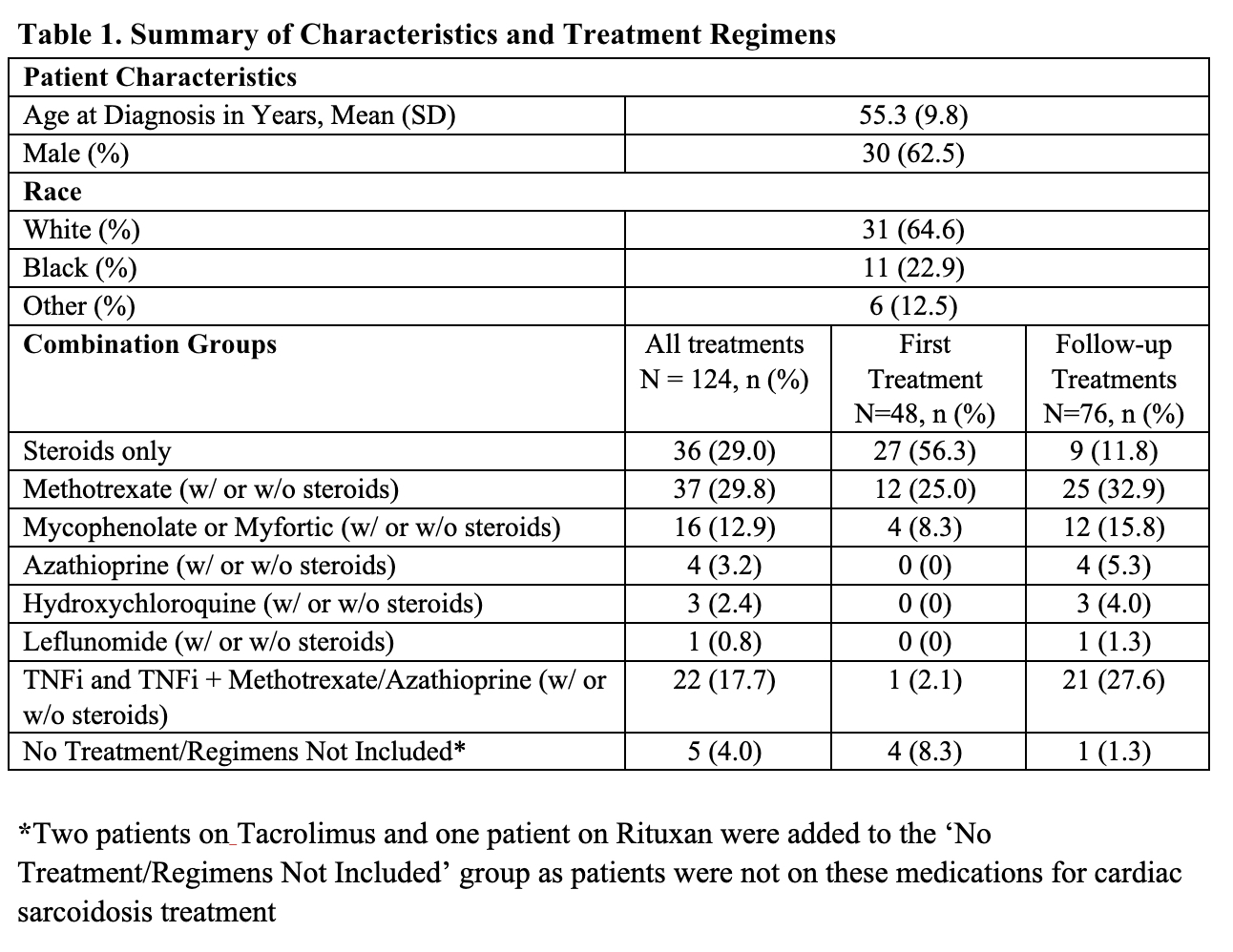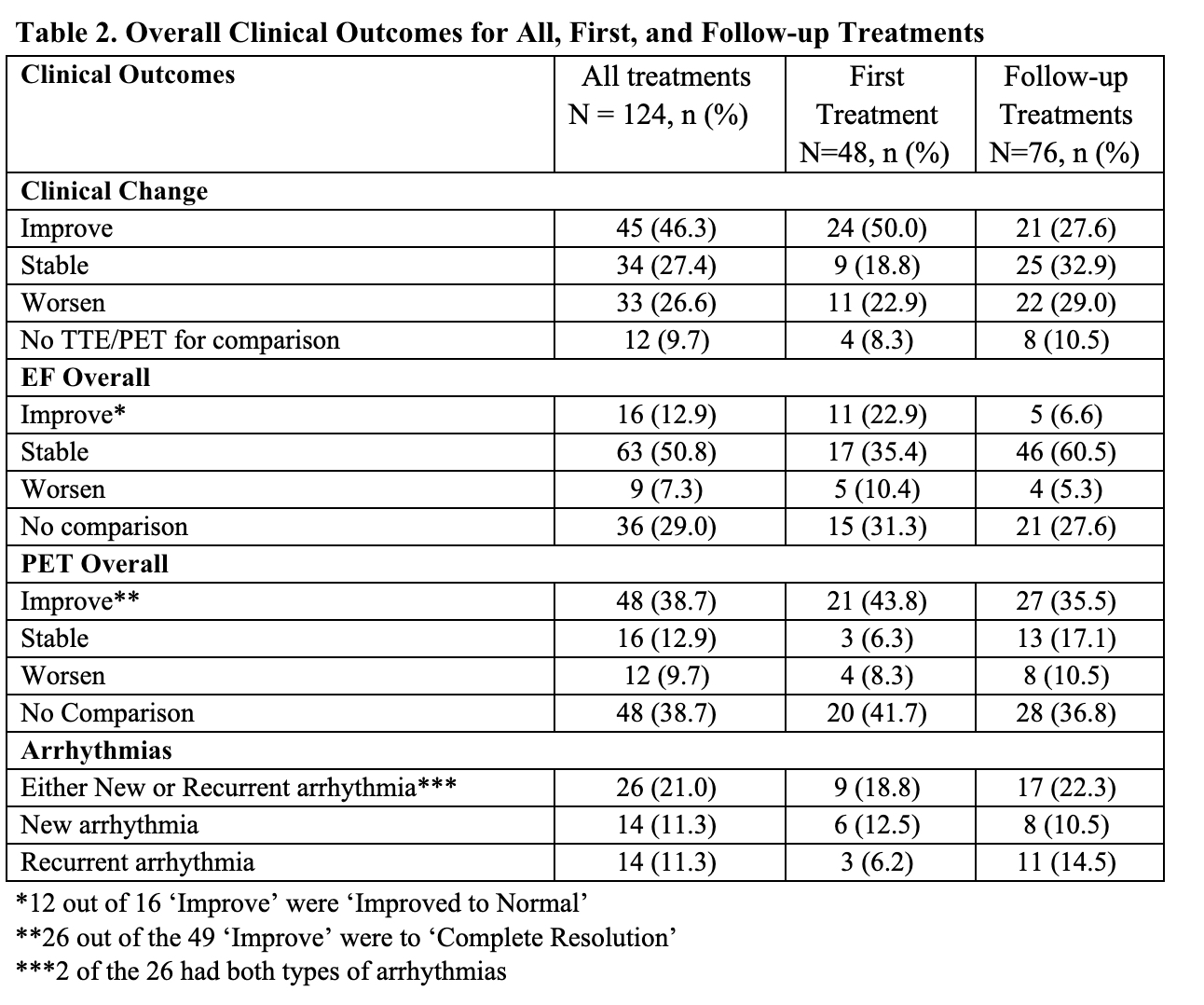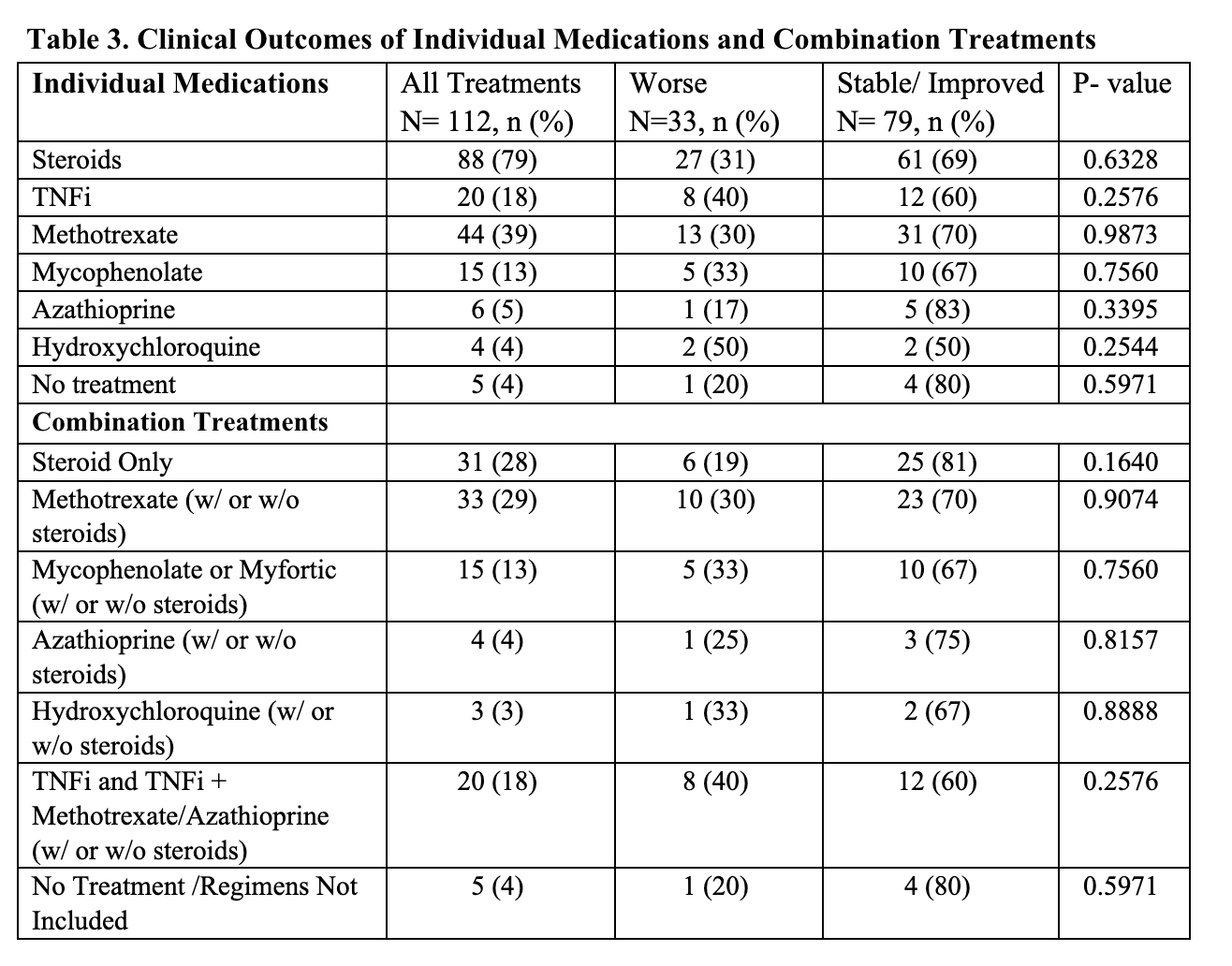Session Information
Date: Tuesday, November 14, 2023
Title: (1913–1944) Miscellaneous Rheumatic & Inflammatory Diseases Poster III
Session Type: Poster Session C
Session Time: 9:00AM-11:00AM
Background/Purpose: There is currently a lack of a consensus standardized guideline for the treatment of cardiac sarcoidosis (CS) because of its rarity, heterogeneity of disease manifestations, and challenges of long-term management. The purpose of this study is to evaluate the efficacy of different treatment regimens, including TNF-α inhibitors, on clinical outcomes. This is the most comprehensive and up to date analysis for CS patients treated at our tertiary care institution, and the continuity of longitudinal care highlights the nuances of treatment decisions made by our physicians to contribute to the standard of practice.
Methods: A monocentric retrospective study of 50 CS patients at our institution was conducted. 31 patients (62%) met World Association of Sarcoidosis and other Granulomatous Disorders (WASOG) and Health Rhythm Society (HRS) diagnostic criteria. The other 19 patients (38%) were clinically diagnosed without biopsy proven disease but fulfilled one of the WASOG probable cardiac characteristics. For clinical outcomes, worsening was defined by the onset of a new CS manifestation1, stabilization as absence of a new CS manifestation and stable ejection fraction (EF) or PET myocardial uptake, and improvement as absence of a new CS manifestation, but with either a ≥ 10% increase in or normalization of EF or improvement in PET myocardial uptake. Generalized estimating equations (GEE) models with independent correlation structure and identity link were used to calculate p-values for comparisons of individual treatment regimens and outcomes.
1. Ballul T, et al. Int J Cardiol. 2019;276:208-211.
Results: Table 1 provides patient demographics and distribution of the different treatment combinations. Of the 50, there were 48 patients treated with at least one regimen, and 34 patients with at least one follow-up treatment for a total of 124 individual treatments.
Table 2 and 3 summarize the associations of each treatment with the overall clinical outcome defined as improved, stable, or worsened. 46.3% of treatment regimens showed clinical improvement and an additional 27.4% showed stabilization. Of these, 50% had clinical improvement with the first treatment as compared to 27.6% in follow-up treatments. In terms of the different regimens, 81% of regimens with steroids only had stable or improved clinical outcomes which was the highest percentage in the treatment groups. 60% of regimens with a TNF-α inhibitor had stable or improved clinical outcomes.
Conclusion: In our study, patients were more likely to see clinical improvement with initial treatment compared to subsequent regimens. This highlights the importance of early therapy as treatment later in the disease course will less likely lead to clinical improvement, possibly a reflection of scarring or irreversible pathology in later stages of the disease. Therefore, clinicians should consider an approach that is more proactive upfront to avoid this progression. In terms of a specific regimen, although our results do not show a superior treatment, the trend does show that regardless of the regimen, the majority of patients have clinical improvement with treatment.
To cite this abstract in AMA style:
Cai F, Paulson A, Wozniak A, Gilbert E, Ostrowski R. Efficacy of Different Treatment Approaches for Cardiac Sarcoidosis [abstract]. Arthritis Rheumatol. 2023; 75 (suppl 9). https://acrabstracts.org/abstract/efficacy-of-different-treatment-approaches-for-cardiac-sarcoidosis/. Accessed .« Back to ACR Convergence 2023
ACR Meeting Abstracts - https://acrabstracts.org/abstract/efficacy-of-different-treatment-approaches-for-cardiac-sarcoidosis/



